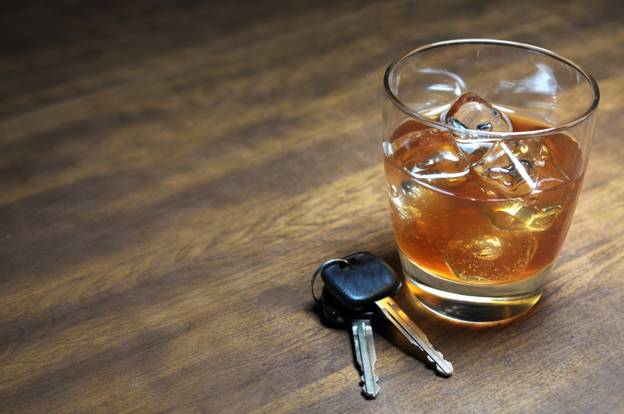Have you ever gone driving under the influence of alcohol or drugs?
DWI is short for “driving while intoxicated” or “driving while impaired.” In the United States, about 30 people die from drunk driving accidents every 50 minutes.
This is why many DWI cases occur. However, officers may mistake your driving patterns and medical condition when checking your BAC. If this will be your first DWI case, then you’ve found the right guide.
Did you know you can beat your DWI case by looking at the DWI case law? You can properly defend yourself by studying more about the legal objections and motions. Continue reading to learn more about DWI and how to beat it.
Consequences of a DWI Case
Getting caught when you’re drinking while driving will have its consequences. No matter what state you are in, you will have to undergo some type of trial.
However, depending on the number of times you’ve done it, there are different consequences. Here is a comparison between the consequences of first-time and multiple DWI offenders.
Jail Time
First-time offenders with a DUI or DWI case will get placed under a misdemeanor. It is punishable by no more than six months to a year in jail. You can get away with a shorter jail time in a few states, lasting around 30 days.
Some states may also consider your offense for the first time and let you go, like Pennsylvania. However, many states set a minimum jail sentence for several days for the first offense. An example is Colorado, where the first offense lasts for five days of jail time.
If you get a second offense, it will go up to five days, then 60 days for the third offense. Some states can also base your jail time on your body’s blood alcohol concentration. The specifics will depend on your state law, but you can only get a maximum of one year of jail time.
The only time you get jail time for more than a year is when you commit a felony DWI. This is when you cause an accident that injured or killed the other party. You may end up staying in prison for five to ten years.
Driver’s License
A DUI or DWI offender has a high chance of having a suspended license. You will have to go through the Department of Motor Vehicles (DMV) to suspend your license. Depending on the circumstances, the suspension will range from three months to a few years.
The suspension for the first DUI conviction will last about 90 days. However, some states allow offenders to drive to school, work, or rehab. The second time you get a DUI case gets two year suspension while the third case lasts for up to three years.
Fines or Fees
DWI varies by state, but the fines can range between $500 and $2,000. The fines get finalized depending on the circumstances and how much alcohol is in your body. If you get a DWI case, you’ll have to expect attorney and court fees.
If you get another conviction, the fines may rise three times higher than your last fine. You’ll need a DWI lawyer to help you fight against an unfair charge or for post bail. Towing and impounding your car is an additional fee that ranges from $400 to $700.
You also get extra fees if the court needs you to go through rehabilitation. The fees may vary depending on the length and type of rehab you pick. The education and treatment you get all depend on your BAC.
The System of the DWI Case Law
You may get confused by the confusing trial system of DWI when it’s your first offense. It all starts from the tests and arrest, where the officer will test if you’re sober. When your test goes wrong, you will receive a ticket that tells you to go to court after a few days.
Your attorney will join you to discuss whether you need to join the first appearance called “arraignment.” If there’s an arraignment, you will know your offense and sentence permitted by law. They will judge if your case is valid or not.
The arraignment period is where they look at your results and check the tests. The next is the pretrial, where you can properly talk to your DWI lawyer for all the details. They will guide you through the trial and make sure to get the best result when the trial is through.
The pretrial is also the time to schedule a hearing or motion and negotiate a reduction of the charge. You can also tender a plea of guilty to avoid getting the maximum consequences. Your attorney will search through the evidence to prove that they may not be correct.
After a few days, the trial will happen where the parties will defend their case. Trials can last for days to a few weeks until the judge believes one side due to undeniable proof. When the judge calls which side is innocent, the charge or consequences gets stated.
How to Win a DWI Case
DWI cases can happen even if you’re not under the influence of alcohol or drugs. If a police officer finds you suspicious due to driving patterns or incorrect tests, you may end up in court.
To avoid false evidence and get the best from your case, you need to know how to win a DWI case.
1. Consult With an Attorney
The majority of DUI attorneys offer a free initial consultation to see if they can support your case. You can get the idea if a DUI lawyer can help you reduce or remove fees and jail time. During the consultation, the attorney will review your documents to find any mistakes.
They will also help investigate everything, from the breath results to alcohol content. Attorneys will give you your best options to get the best results after the incident. Consulting with an attorney also gives you the minimum and maximum penalties for your DUI case.
2. Learn About the NHTSA DWI Manual
Police officers conduct DWI investigations by taking you through a series of tests. You need to make the DWI trial sway to your side by gathering evidence.
The number one thing you should check is the National Highway Traffic Safety Administration DUI Manual (NHTSA). Reading the manual will help you see if the police officer did the right tests.
Wrong and invalid tests usually lead to incorrect results. Check the manual for the guidelines that an officer should follow when testing for DWI.
3. Check If the DWI Checkpoint Traffic Stop Was Legal
DWI or safety checkpoints typically administer busy public roads to lessen accidents.
Officers would stop cars using a pre-approved method to check the drivers and cars’ condition. Although they ask you many questions, you are not under a legal obligation to answer all of them.
Checkpoint arrest scenarios can often get overtaken due to strict DUI laws. If the officer does not have a reasonable suspicion of stopping your car, it’s easy to file a motion. A motion to suppress evidence will exclude any evidence collected by an illegal search.
4. Challenge the Chemical Results
Some driving patterns like weaving, excessive speed, and slow driving can get an officer’s suspicion that you’re DUI. Defending against a DWI case can become complex and technical. You need to challenge every test, from the blood tests or BAC readings.
If there were no violations committed during that period, you have the upper hand. You can challenge their viewpoint by checking the dash or road cameras. It’s also best to challenge the breath tests to check if you only have residual alcohol.
Residual alcohol lingers in your mouth for the following reasons:
- You burped
- You regurgitated
- You have alcohol-soaked food in your mouth
- You suffer from heartburn, reflux, or GERD
Medical conditions and Atkins-style diets can affect breath testing instruments. Blood tests can get affected by fermentation and contamination. Improper storage of the blood sample may also change, resulting in incorrect results.
5. Make Sure the Sobriety Tests Were Reliable
Field sobriety tests are the tests for police officers to determine if you’re intoxicated. However, some officers don’t have the proper training for the tests. There are times when they perform the tests despite the outside elements or factors.
It can be easy to slip through the accusations from the sobriety test with these factors affecting you:
- Poor lighting
- Road conditions
- Sloped or uneven surfaces
- Footwear
- Officer intimidation
- Anxiety
- Inclement weather
Untrained sobriety tests often lead to sober people also failing the tests. Let your attorney help you review the police report to point out the wrong tests given. If the court won’t believe you, it’s always good to show the video from dash cams if you’re visible.
Your Complete Guide to Handling a DWI Case
A DWI case is confusing and stressful to defend against, especially if it’s your first time or you’re innocent. Win the DWI case by further learning about tips or ways to defend your case.
Was this article helpful for you? Take a look at our collection of different guides to learn more.




